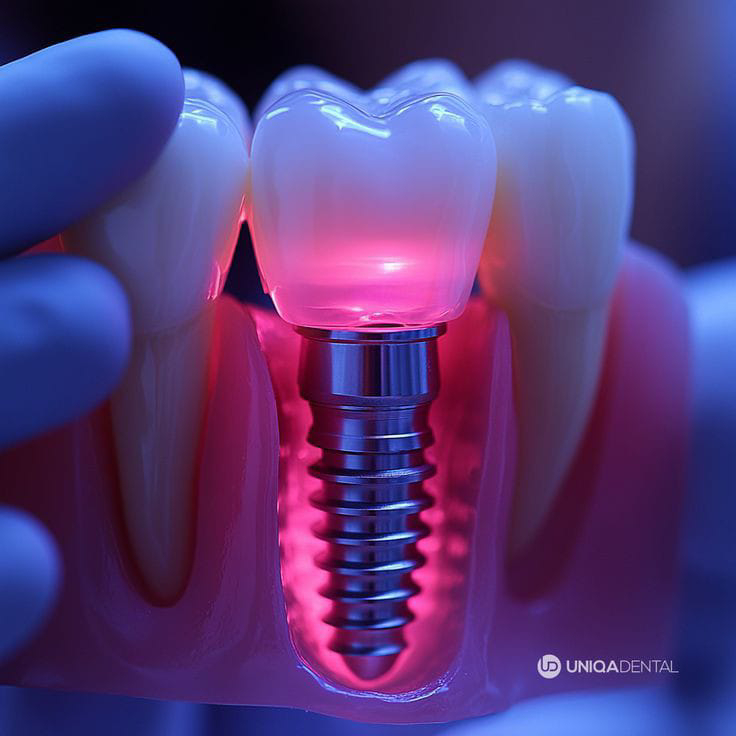Botched Dental Implants
Children lose their teeth, but this is usually not a problem because they are typically primary dentition, or "baby teeth"(also known as milk teeth). These lost teeth are replaced by secondary dentition or permanent teeth. However, what happens if this permanent dentition is lost during a football match, a wrestling game, or even a tragic fall while wearing heels?
Do these lost teeth grow back? No. But never fear—there’s a solution. In 1952, a Swedish orthopedic surgeon, Per-Ingvar Brånemar, discovered osseointegration, laying the foundation for the invention of modern dental implants. Today, they are considered standard of care for prosthetic tooth replacement in dentistry.
A dental implant is a biocompatible device surgically inserted into the jawbone to replace missing teeth. Most are made of titanium, which enables them to integrate with bone without being detected as foreign objects by the body.
A botched dental implant is an unsuccessful or poorly executed procedure that results in functional, aesthetic, or medical complications. While most dental implants boast a 98% success rate, it is crucial to recognize the signs of a botched dental implant to ensure prompt and adequate intervention.
Signs Of A Botched Dental Implant
1. Prolonged Pain And Discomfort
Some pain after the procedure is normal, but it should resolve shortly. Pain around the implant site that persists for months could indicate a failed dental implant and requires immediate attention.
2. Changes In The Gums
Swelling or gum recession following an implant procedure can signal a failed implant. If the implant is improperly placed—too shallow, too deep, at the wrong angle, or lacking sufficient bone support—the gums are often the first area to exhibit signs of a problem.
3. Movement Of The Implant
Unlike natural teeth, which can move very slightly, a dental implant should remain completely fixed to the bone. Any movement is a clear indication of failure and requires a visit to your dentist.
Tips For Successful Dental Implants
1. Research Your Dentist
A dental implant can be performed by any licensed dentist, provided the treatment adheres to the standard of care. However, oral maxillofacial surgeons and periodontists specialize in implant surgery and are often the best choice for this procedure.
2. Maintain Follow-Up Care
Regular follow-ups with your dentist are essential to prevent complications such as peri-implantitis, which refers to inflammation of the gum and bone surrounding the implant.
3. Practice Good Oral Hygiene
Proper oral hygiene at home reduces the risk of peri-implantitis and ensures the longevity of your dental implant.
A dental implant is a permanent procedure, so careful consideration should be given before and during the process. Recognizing the signs of a failed implant and maintaining proper care is crucial for the long-term success of your dental implant.
Olajide Olamide






Post a Comment